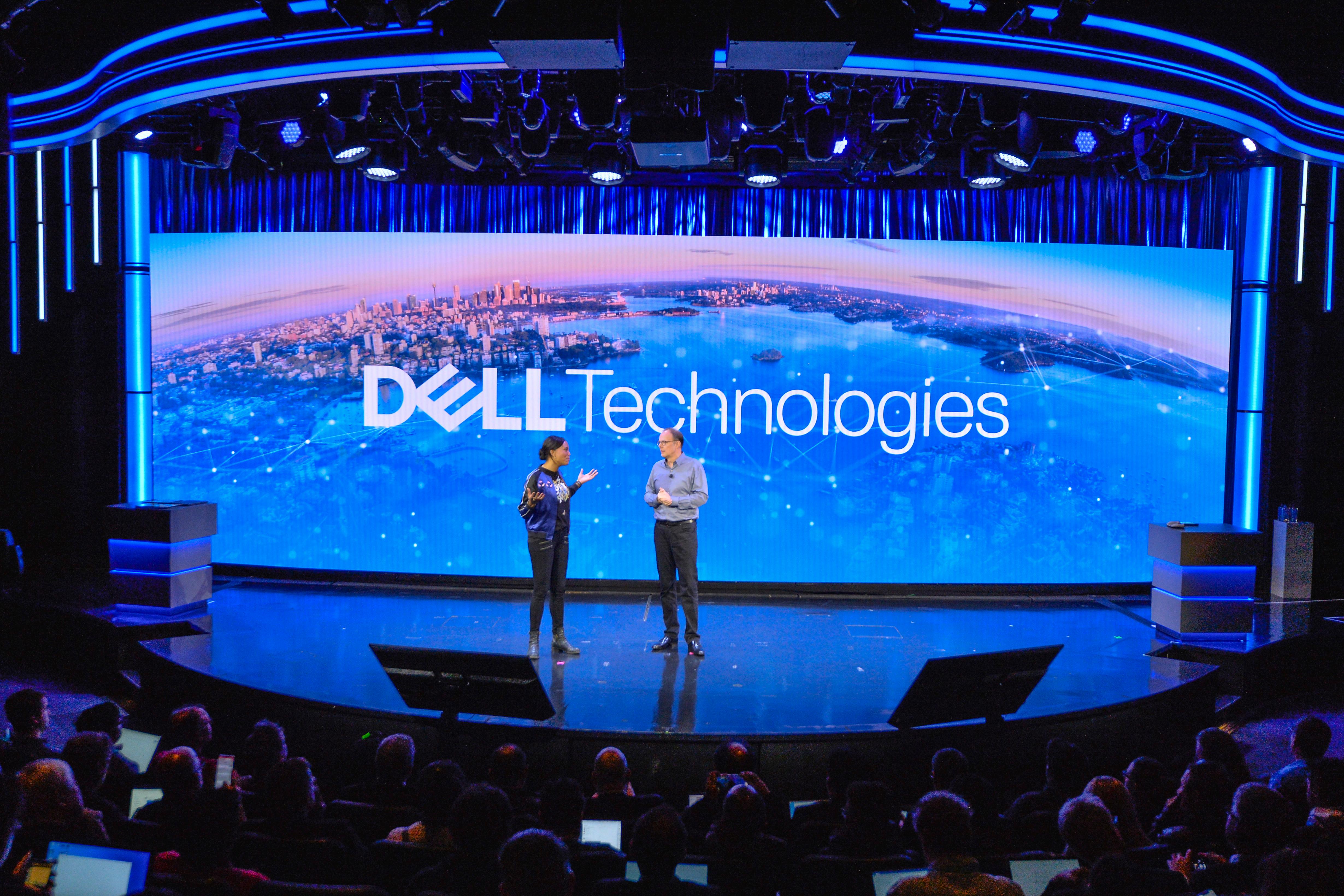Dell Stock Splits in Half, Adds to Long History of Share Adjustments
Dell's latest stock split is causing investors to take a peek backwards and see where DELL stock has been.
Nov. 3 2021, Published 2:40 p.m. ET

Dell Technologies (NYSE:DELL) stock investors might be looking inquisitively at their portfolios on Nov. 3 and wondering why their DELL holdings are different. It's because the Texas-based tech company has performed a stock split.
What's DELL stock's history and how can investors prepare for a changing future for the stock that's been on—and off—the market.
VMware completes spin-off from parent company Dell
Cloud technology company VMware Inc. (NYSE:VMW) has officially completed a spin-off from its parent company, Dell, which formerly owned 81 percent of the subsidiary. The two entities will remain part of a strategic partnership, but the new arrangement will increase VMware's operational and financial flexibility.
In the spin-off, VMware stockholders received a total $11.5 billion special cash dividend (or a $27.40-per-share dividend). Meanwhile, Dell shareholders received 310.9 million shares and the cash to accompany it.
Dell stock splits to smooth shareholder assets after spin-off
Dell performed an approximately 2:1 stock split on Nov. 2. The number of outstanding shares doubled while the price per share was cut in half. That's why the Nov. 1 closing price of $111.51 per share hit $55.12 by mid-morning the following day.
The stock split helped Dell smooth out its price distribution following the VMware spin-off. While the value of each share stayed the same, Dell did provide 0.44 shares of VMware common stock for each Dell share as a special dividend, with fractional shares distributed in the form of cash.
Dell has a public-to-private history among numerous stock splits
Dell first split its stock in 1992 at a 3:2 ratio. By the end of the decade, the company had completed six more stock splits, each of which was a 2:1 split.
In October 2013, privately held Silver Lake Partners bought out the publicly traded company for $24.4 billion. Dell stock went private and was delisted from the Nasdaq and the Hong Kong Stock Exchange, where it traded American depositary receipts.
Dell returned to the public market in 2018 when it listed on the NYSE under an eponymous ticker. The company bought back tracking shares in VMware to help it go public.
Success in the consumer market doesn't necessarily equal success on the public market, as Dell discovered firsthand. However, founder and CEO Michael Dell restructured the company to be more shareholder-friendly during its time in the privately held landscape.
DELL stock is thriving post-pandemic—Is it here to stay?
Since going public again in December 2018, Dell stock has gained 226.83 percent of value. Much of that growth started in March 2020 when the stock traded at $12.90 per share following the COVID-19 market crash. Since then, the shares are up in value by more than 323 percent.
Despite a freckled past, shareholders are keen on Dell. A stock split (as opposed to a reverse stock split) often acts as a welcome sign for interested investors. Morgan Stanley analysts updated their target price to $67 per share, which would be a premium on the current sub-$55 price on Nov. 3.

